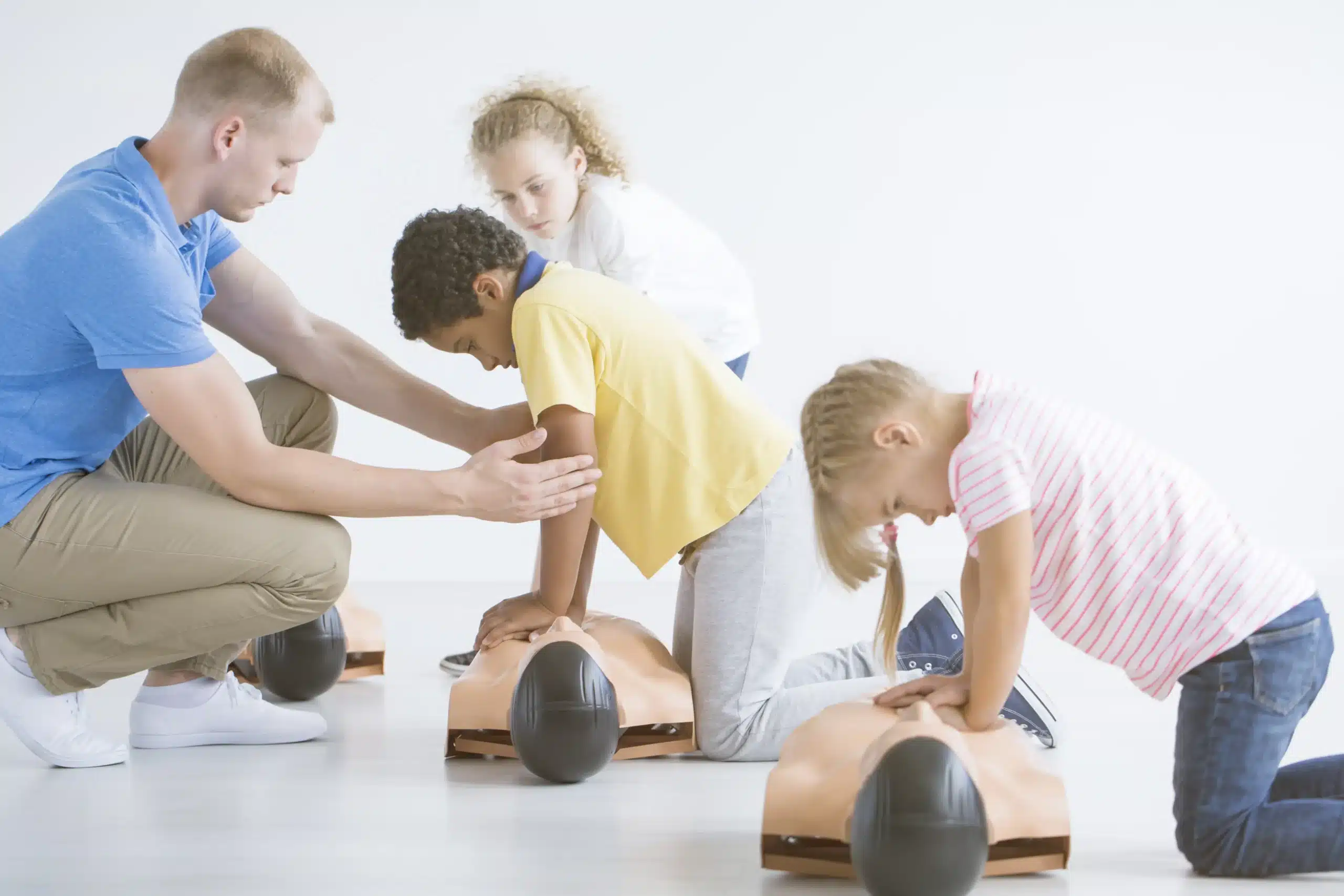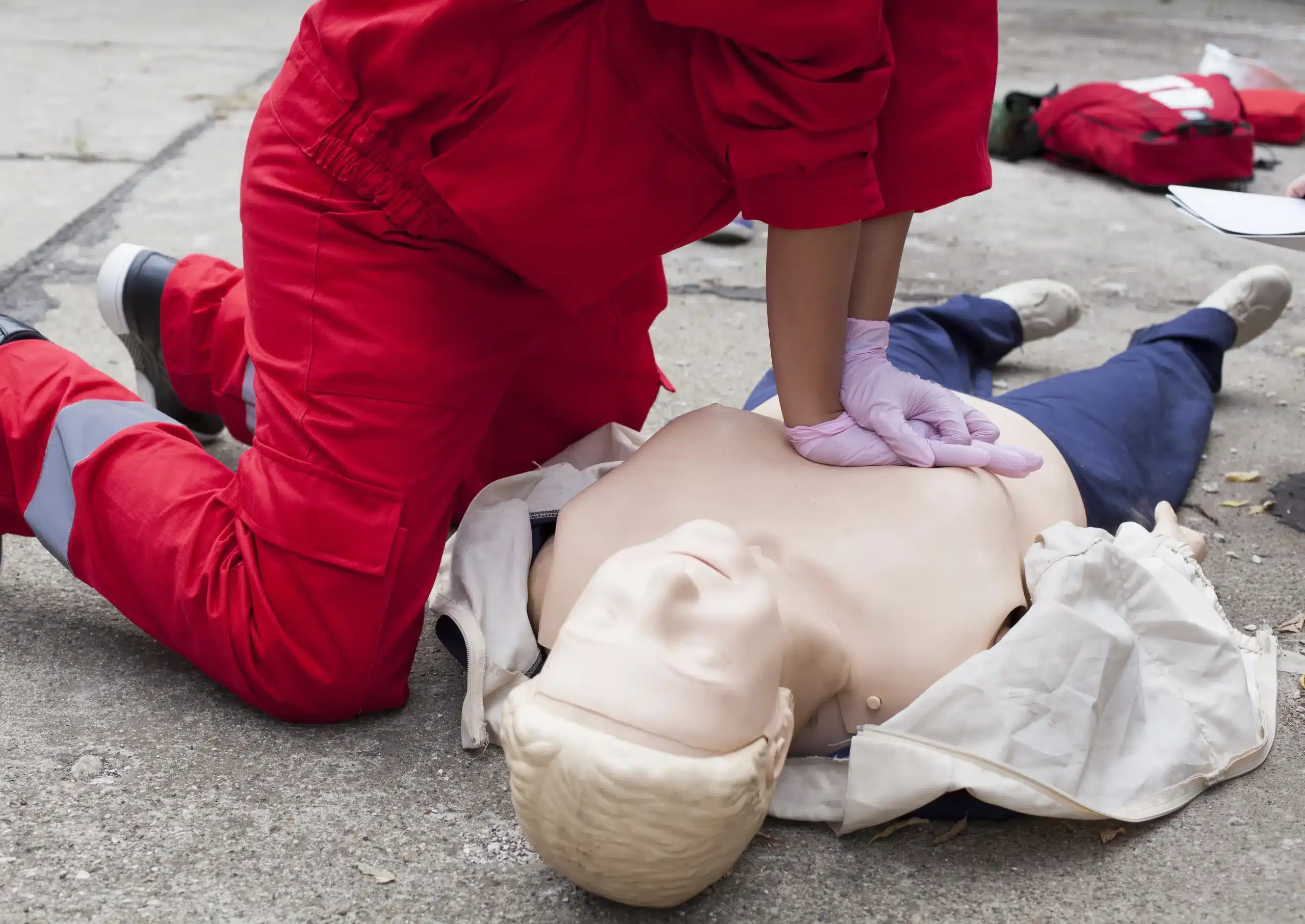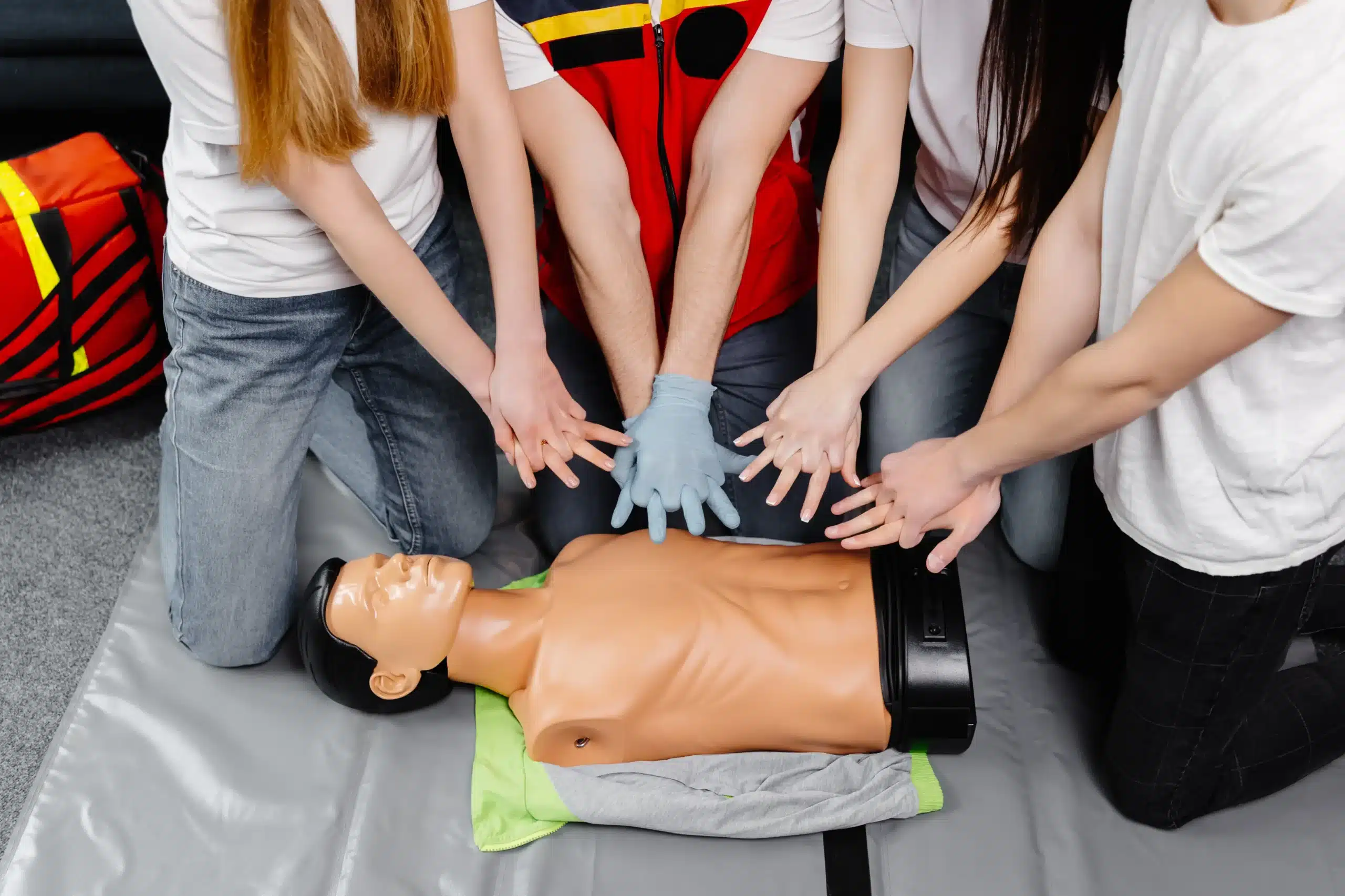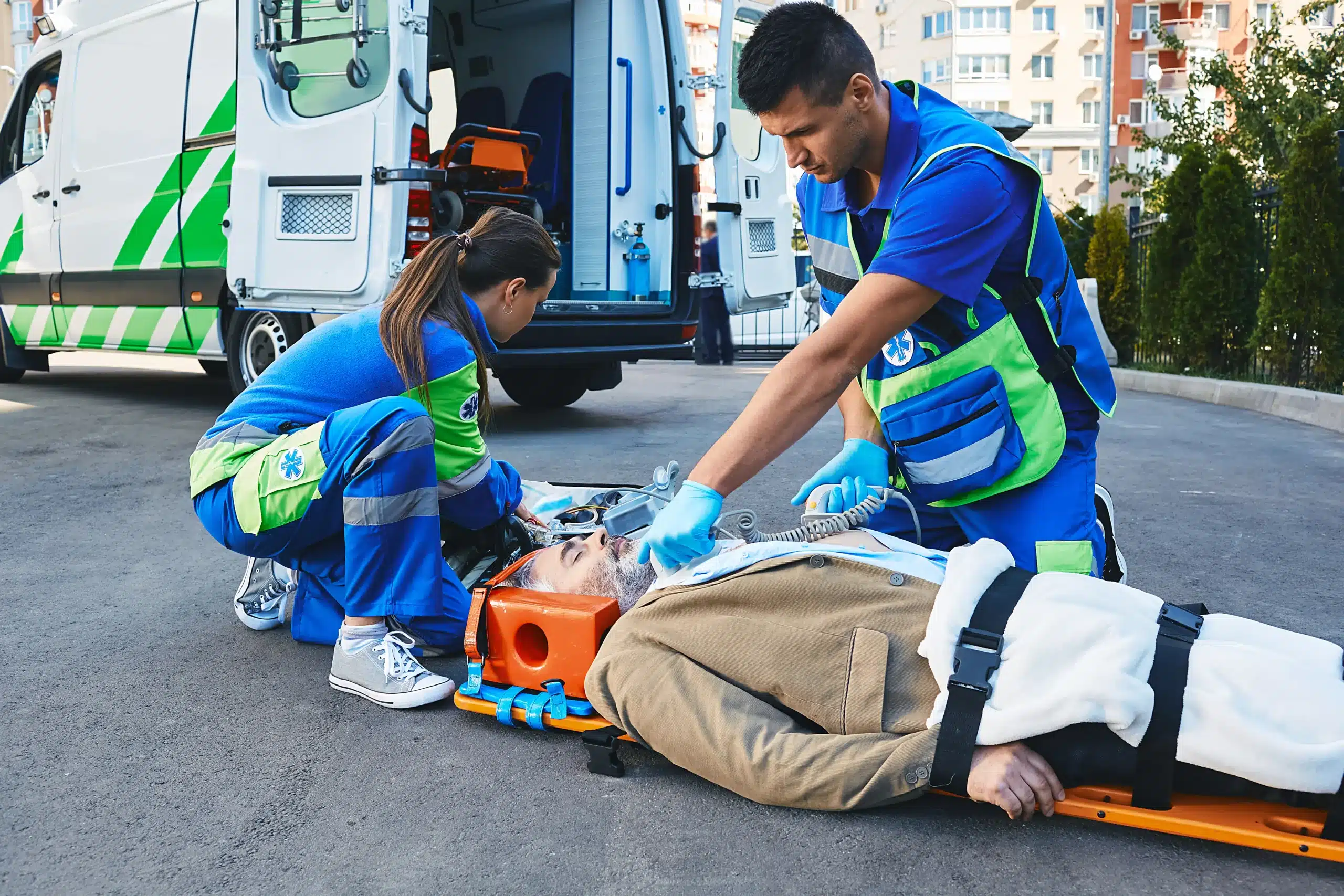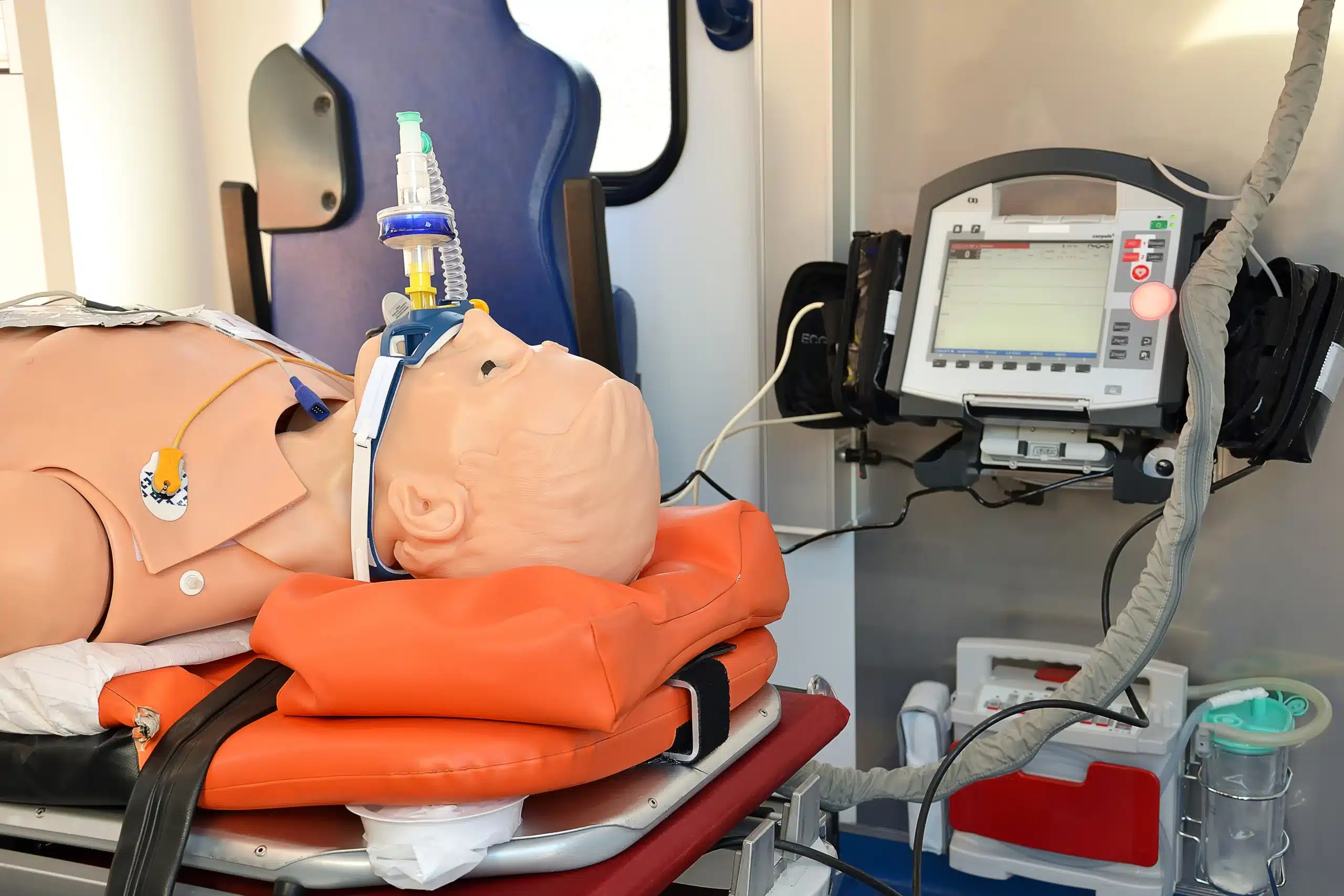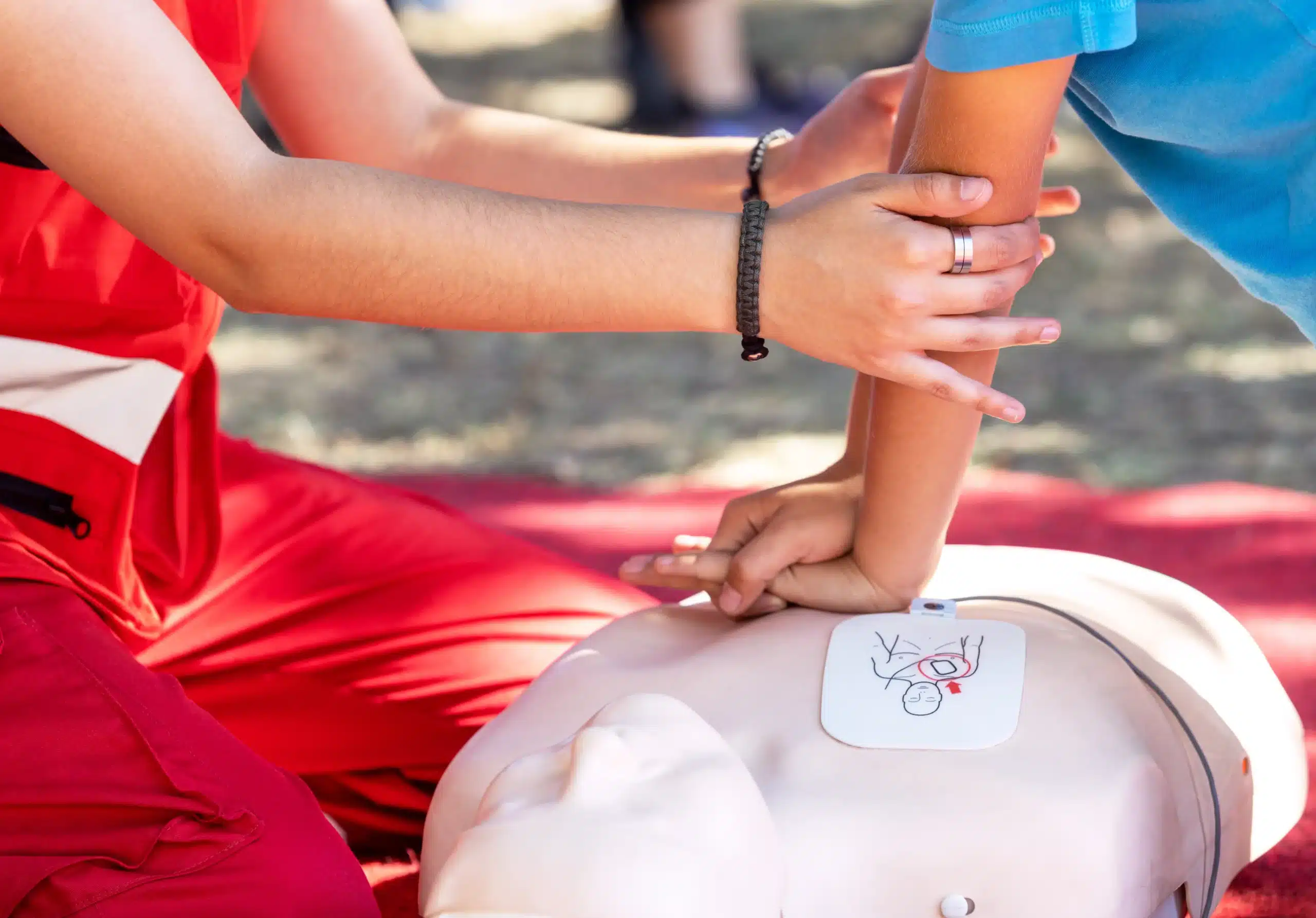As a healthcare provider, your ability to respond effectively during a cardiovascular emergency can significantly impact patient outcomes. Advanced Cardiac Life Support (ACLS) empowers you with the knowledge and skills to handle these critical situations. This article serves as your comprehensive guide to ACLS certification in Tracy, CA. We’ll cover what ACLS is, why it’s important, and who can benefit from this training. We’ll also explore the certification process, discuss the costs and value of ACLS, and provide practical tips for preparing for success. Join us as we delve into the world of advanced cardiac life support in Tracy and help you take the next step in your professional development.
Key Takeaways
- ACLS is crucial for effective emergency response: It empowers healthcare professionals with advanced life-saving skills for managing cardiovascular emergencies and improving patient outcomes. Find a training program that suits your needs and learning preferences.
- Hands-on practice and teamwork are essential for ACLS mastery: Look for courses that emphasize realistic simulations and collaborative training to build confidence and competence in high-pressure situations. Regularly review updated guidelines to maintain proficiency.
- Tracy CPR Classes offers high-quality, accessible ACLS training: We provide flexible scheduling, competitive pricing, and a supportive learning environment to help you succeed. Contact us to learn more and start your ACLS journey.
What is Advanced Cardiac Life Support (ACLS)?
What is ACLS and why is it important?
Advanced Cardiovascular Life Support (ACLS) is a set of protocols and algorithms designed to manage life-threatening cardiovascular emergencies. It goes beyond basic life support (BLS) with advanced techniques and interventions. ACLS emphasizes early recognition and intervention to improve patient outcomes during cardiac arrest, stroke, and other acute cardiovascular events. These time-sensitive situations require a coordinated team response, and ACLS provides the framework for effective teamwork and communication in high-pressure medical environments. It’s a cornerstone of emergency care, giving medical professionals the knowledge and skills to handle complex situations and potentially save lives. For more information on basic life support, visit our BLS course page.
What does ACLS training cover?
ACLS training equips healthcare providers with the skills to manage a range of cardiovascular emergencies. The curriculum covers essential concepts like airway management, rhythm recognition, and pharmacology for treating these conditions. Participants learn to interpret electrocardiograms (ECGs), administer medications, and perform advanced procedures like intubation and defibrillation. ACLS courses also emphasize effective team dynamics and communication—crucial for successful resuscitation efforts. This training isn’t limited to specific specialties. It’s relevant for a diverse group of healthcare providers who might face cardiac emergencies in their work.
Who benefits from ACLS?
Anyone who might respond to a cardiac emergency can benefit from ACLS training. This includes physicians, nurses, paramedics, respiratory therapists, and other healthcare professionals. ACLS certification is especially important for those working in emergency departments, intensive care units (ICUs), and critical care transport teams. Having a team of ACLS-certified professionals ensures a coordinated and effective response to critical situations, ultimately increasing the chances of positive patient outcomes. Healthcare providers in Northern California can explore our CPR class directory for additional resources.
Find ACLS Certification in Tracy, CA
Getting your ACLS certification is an important step, so you’ll want to find a training center that meets your needs. Think about what’s important to you—flexible scheduling, location, class size, or other factors. Once you have a good idea of your priorities, you can start researching options.
ACLS Courses at Tracy CPR Classes
Tracy CPR Classes offers American Heart Association (AHA) ACLS certification and recertification courses seven days a week. We understand busy schedules, so we provide flexible scheduling options from 7 am to 6 pm. Our courses cover essential life-saving skills for healthcare professionals, including recognizing and managing cardiac arrest, stroke, and other respiratory emergencies.
Other ACLS Training Providers in Tracy
You have other options for ACLS training in the area, too. Safety Training Seminars, for example, provides AHA-certified courses in several disciplines, including BLS, ACLS, PALS, CPR, and First Aid. They focus on community safety and offer convenient training options right here in Tracy. You might also want to check out providers like Bay Area CPR.
Compare Courses: Features & Schedules
Before committing to a course, take some time to compare what each training center offers. Look at their schedules, course formats (in-person, blended learning, etc.), and any additional features. For instance, the American Heart Association RQI program is a popular option for medical professionals seeking BLS, ACLS, and PALS certification. It’s known for being a modern and efficient path to certification. Comparing your options helps you find the best fit for your learning style and schedule.
Get ACLS Certified: Process & Structure
This section breaks down the steps to becoming ACLS certified in Tracy, California. We’ll cover everything from online learning to in-person skills practice, enrollment requirements, and keeping your certification current.
Learn ACLS Online
The American Heart Association RQI (Resuscitation Quality Improvement) program offers a convenient and efficient way to learn the material for your ACLS certification. This blended learning approach allows healthcare professionals in Tracy to complete the cognitive portion of the course online at their own pace. It’s a popular choice for busy professionals who need flexibility.
Practice Your ACLS Skills In-Person
While online learning covers essential knowledge, hands-on practice is crucial for mastering ACLS. In-person skills sessions at Tracy CPR Classes provide the opportunity to apply what you’ve learned in a simulated environment. You’ll work with experienced instructors and practice essential skills like high-quality CPR and teamwork. This combination of online learning and in-person practice ensures you’re fully prepared to handle cardiovascular emergencies.
Enrollment Requirements
Before enrolling in an ACLS renewal course, you’ll need a current BLS for Healthcare Provider CPR card. This prerequisite ensures you have the foundational knowledge and skills necessary to build upon in the ACLS course. ACLS renewal is a refresher course designed for healthcare providers who already hold ACLS certification.
Certification Renewal
Maintaining your ACLS certification is essential for providing high-quality patient care. Regular recertification ensures you stay up-to-date with the latest advancements in ACLS guidelines. Tracy CPR Classes makes it easy to renew your certification, helping you maintain your skills and confidence in emergency situations.
ACLS Training Costs & Value in Tracy
Investing in Advanced Cardiac Life Support (ACLS) training demonstrates a commitment to excellent patient care. But what does that investment entail in Tracy, California? This section breaks down the costs associated with ACLS certification and explores its value for healthcare professionals.
ACLS Course Pricing
At Tracy CPR Classes, the ACLS course costs $290. This comprehensive fee covers all aspects of the training, providing the knowledge and hands-on practice you need to manage cardiovascular emergencies confidently. From recognizing and treating life-threatening arrhythmias to mastering effective team dynamics, this investment prepares you for success.
Competitive Pricing & Price Matching
We understand cost is a factor when choosing training. Tracy CPR Classes offers a price match guarantee. We’re committed to providing high-quality ACLS training at a competitive price, making it accessible to healthcare providers in Tracy. Contact us to learn more about our price match policy.
Benefits of ACLS Certification
The value of ACLS certification goes beyond its price. For healthcare professionals in high-stakes environments like emergency departments, ICUs, and critical care transport teams, ACLS is essential. This training equips you with the skills to make quick, informed decisions during critical moments, potentially saving lives. ACLS also emphasizes teamwork and communication, fostering a collaborative approach to patient care. Ultimately, ACLS certification enhances the quality of care during emergencies like cardiac arrest and stroke, leading to improved patient outcomes and increased confidence.
Prepare for ACLS Certification Success
Getting ready for your ACLS certification takes dedicated preparation and a focused mindset. Here’s how to set yourself up for success:
Study Materials & Resources
Solid preparation is key for ACLS certification. Familiarize yourself with the course materials beforehand. Many ACLS courses provide manuals, online resources, and practice tests. Take advantage of these tools. Studies show that using a variety of learning methods, like didactic, practical, and simulation exercises, improves knowledge retention for healthcare professionals. This pre-course study will give you a strong foundation and allow you to focus on mastering the skills during the actual training.
Master ACLS Protocols
ACLS protocols are the backbone of effective emergency cardiac care. Understanding these algorithms is crucial for passing your certification. Focus on the systematic approach to patient assessment, treatment, and ongoing management. Training scenarios often present real-life situations you might encounter, so pay close attention to how each protocol applies in different contexts. This will build your confidence in applying the right steps under pressure.
Overcome ACLS Challenges
ACLS assessments can be challenging, but don’t let that discourage you. Many people struggle with specific aspects of the evaluation, whether it’s the megacode simulations or the written exam. Identify your weak areas early on and dedicate extra time to practicing those skills. Reviewing common challenges and their solutions can help you feel more prepared and confident heading into your assessment.
Manage Stress During Training
ACLS training can be intense, and it’s normal to feel some stress. Remember that everyone is there to learn and improve their skills. Focus on the learning process rather than the pressure of the exam. Take breaks when needed, practice mindfulness techniques, and talk to your instructors or peers if you’re feeling overwhelmed. Managing stress effectively during training will not only improve your performance but also contribute to your overall well-being.
Get the Most Out of Your ACLS Training
Getting your ACLS certification is a significant achievement, but the real value lies in mastering the skills and knowledge to confidently handle real-world emergencies. Here’s how to maximize your ACLS training:
Hands-on Practice & Simulations
ACLS training goes beyond textbooks and lectures. The most effective programs incorporate realistic scenarios and simulations. These experiences bridge the gap between theory and practice, allowing you to apply your knowledge in a controlled environment. Hands-on practice builds muscle memory and reinforces critical thinking, building your confidence for real-world emergencies. Look for courses that prioritize simulations and scenario-based learning.
Teamwork Skills for ACLS
Effective teamwork is the cornerstone of successful resuscitation. Communication is key, as breakdowns can hinder even the most skilled healthcare providers. Your ACLS training should provide opportunities to practice clear communication, role assignment, and collaborative decision-making within a team. These skills are just as important as the technical aspects of ACLS.
Stay Updated on ACLS Guidelines
The medical field is constantly evolving, and ACLS guidelines are periodically updated to reflect the latest research and best practices. Staying informed about these changes is crucial for providing effective care. Review updated guidelines regularly and seek continuing education to maintain your proficiency and avoid common mistakes.
Feedback & Improvement
Learning is a continuous process. Actively seek feedback from your instructors and peers throughout your ACLS training. Constructive criticism can identify areas for improvement and refine your skills. Managing stress during training is also essential. Look for programs that incorporate stress-reduction techniques and create a supportive learning environment. This will help you perform your best during training and in real-life emergencies.
Related Articles
- ACLS HeartCode Lodi: Your Certification Guide – Tracy CPR Classes
- ACLS Renewal in Tracy: Your Guide – Tracy CPR Classes
- Pediatric Advanced Life Support (PALS) Training in Tracy – Tracy CPR Classes
- AHA ACLS Classes in Tracy, CA – Tracy CPR Classes
- Online PALS Classes in Lodi: Your Certification Guide – Tracy CPR Classes
Frequently Asked Questions
What is the difference between BLS and ACLS? BLS, or Basic Life Support, focuses on immediate life-saving techniques like CPR and using an AED. ACLS builds upon BLS, encompassing more advanced interventions for managing complex cardiovascular emergencies, such as administering medications and interpreting ECG rhythms. Think of BLS as the foundation, while ACLS provides the advanced tools for healthcare professionals.
How often do I need to renew my ACLS certification? ACLS certification is typically valid for two years. To maintain your credentials and stay up-to-date with the latest guidelines, you’ll need to complete a recertification course before your current certification expires. Regular renewal ensures you’re prepared to handle cardiovascular emergencies effectively.
What if I don’t work in a hospital? Do I still need ACLS? While ACLS is crucial for hospital settings like emergency rooms and ICUs, it’s also valuable for any healthcare professional who might encounter a cardiovascular emergency. This could include paramedics, respiratory therapists, and those working in outpatient clinics or other healthcare facilities. Having ACLS training can make a significant difference in patient outcomes, regardless of your specific work environment.
What can I expect during an ACLS course? ACLS courses combine interactive learning with hands-on practice. Expect a mix of lectures, discussions, demonstrations, and simulations. You’ll learn to recognize and manage various cardiovascular emergencies, interpret ECGs, administer medications, and work effectively as part of a team. The course culminates in a skills test and a written exam to assess your understanding and proficiency.
How can I prepare for my ACLS course? Preparation is key to success in ACLS training. Review the course materials beforehand, including the provider manual and any online resources. Familiarize yourself with the algorithms and protocols for managing different cardiovascular emergencies. Practice your skills and consider forming study groups with peers to reinforce your learning. Most importantly, come prepared to actively participate and engage in the learning process.
